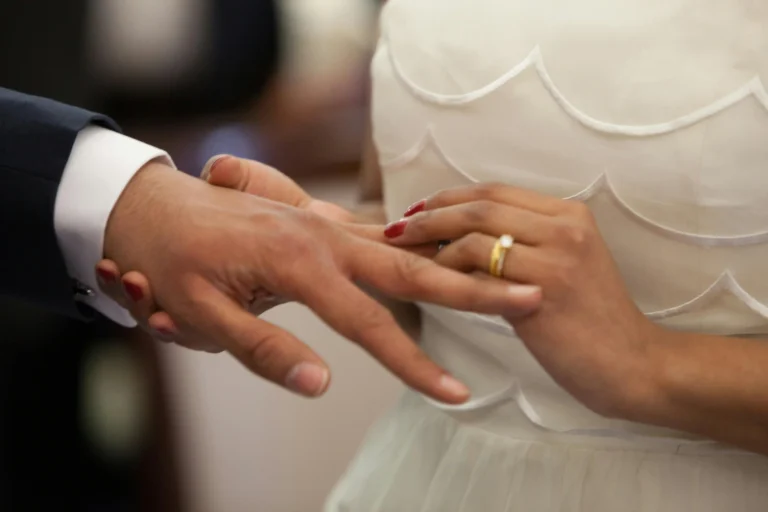8 Signs Your Husband Regrets Cheating on You
Discovering infidelity creates devastating pain and confusion about your marriage’s future.
If you’re wondering whether your husband truly regrets his betrayal, you need to look beyond words to consistent actions and behavioral changes.
Genuine remorse involves more than apologies—it requires sustained effort to rebuild trust and demonstrate authentic transformation.
1. He Takes Full Responsibility Without Making Excuses

A husband who genuinely regrets cheating accepts complete accountability for his actions without shifting blame or minimizing what happened.
He doesn’t try to justify his behavior by pointing to problems in your marriage, stress at work, or other circumstances that made him feel vulnerable.
You’ll notice he stops making statements like “you weren’t meeting my needs” or “we were having problems anyway.”
Instead, he acknowledges that cheating was his choice and his fault, regardless of any underlying issues that existed in your relationship.
He understands that explaining his emotional state at the time isn’t the same as excusing his behavior.
When he discusses what led to his infidelity, he does so to help you understand his mindset, not to reduce his culpability.
This level of accountability extends to conversations with others as well.
You might discover that he’s told friends, family, or counselors that he alone is responsible for betraying your trust and damaging your marriage.
2. He Willingly Answers All Your Questions Honestly
Someone who truly regrets cheating understands your need for information and answers your questions completely, even when it’s uncomfortable or embarrassing for him.
He doesn’t become defensive, irritated, or evasive when you ask for details about the affair.
He provides specific information about timeline, locations, and the nature of his relationship with the other person without making you feel like you’re interrogating him.
He recognizes that transparency is essential for rebuilding trust. You notice he doesn’t say things like “it doesn’t matter now” or “talking about it will just hurt you more.”
Instead, he acknowledges that you have the right to understand what happened and that withholding information only creates more damage.
He continues answering questions even weeks or months later when new concerns arise.
He doesn’t express frustration about revisiting the topic, understanding that healing isn’t linear and your need for clarity may evolve over time.
3. He Proactively Seeks Professional Help

A husband who genuinely regrets his infidelity takes initiative to get professional help rather than waiting for you to demand it.
He recognizes that cheating often stems from deeper issues that require professional guidance to address effectively.
He doesn’t just attend couples counseling because you insist on it—he also pursues individual therapy to understand why he made such devastating choices.
He views counseling as necessary for his personal growth, not just as something to appease you.
You observe him actively participating in therapy sessions rather than going through the motions.
He comes prepared with topics to discuss, implements suggestions from the counselor, and shows genuine engagement with the therapeutic process.
He might also seek spiritual counseling if faith is important to your relationship, acknowledging that his actions violated not just your trust but also his moral and spiritual commitments.
4. He Becomes Completely Transparent About His Activities
Someone who truly regrets cheating eliminates all secrecy from his daily life and willingly shares information about his whereabouts, communications, and activities.
He understands that transparency is crucial for rebuilding trust. He gives you access to his phone, email, and social media accounts without being asked and doesn’t delete messages or browsing history.
He recognizes that privacy becomes a privilege he needs to earn back through consistent trustworthy behavior.
You notice he proactively shares his schedule, tells you when plans change, and keeps you informed about his interactions with others.
He doesn’t view this transparency as punishment but as a necessary step toward healing your marriage.
He maintains this openness consistently over time rather than just during the immediate aftermath of discovery.
He understands that rebuilding trust requires sustained transparency, not just temporary compliance.
5. He Cuts All Contact With the Other Person

A husband who genuinely regrets his affair immediately and completely ends all contact with the person he cheated with, regardless of the circumstances or inconvenience this might cause.
He doesn’t negotiate partial contact or maintain “friendship” with this person. He prioritizes your marriage over his professional convenience or comfort.
If the affair involved a coworker, he takes concrete steps to minimize interaction and might even consider changing jobs if necessary.
He doesn’t just promise to end the relationship—he takes verifiable actions like blocking phone numbers, deleting social media connections, and avoiding places where he might encounter this person.
You can see evidence of these actions rather than just hearing promises.
He understands that any ongoing contact, even innocent communication, represents continued betrayal of your trust.
He demonstrates his commitment to your marriage by making these difficult but necessary changes.
6. He Shows Genuine Empathy for Your Pain
Someone who truly regrets cheating develops deep empathy for the devastating impact of his actions on you.
He doesn’t just feel sorry for himself or guilty about his behavior—he genuinely understands and feels the pain he’s caused you.
You notice he listens when you express your hurt without becoming defensive or trying to minimize your feelings.
He acknowledges the specific ways his betrayal has affected your self-esteem, sense of security, and ability to trust.
He shows patience with your emotional process, understanding that healing takes time and that you might have good days and bad days as you work through the trauma of his infidelity.
He demonstrates this empathy through actions, not just words.
He might write letters acknowledging your pain, create space for you to express your feelings, or show extra consideration for your emotional needs during this difficult time.
7. He Invests Significantly in Rebuilding Your Relationship

A husband who genuinely regrets cheating puts substantial time, energy, and resources into repairing the damage he’s caused to your marriage.
He doesn’t expect you to “get over it” quickly or act like nothing happened.
He initiates conversations about your relationship, suggests activities you can do together, and actively works to recreate emotional and physical intimacy at a pace that feels comfortable for you.
You observe him making your marriage a priority in ways he might not have before the affair.
He cancels other commitments to spend time with you, plans special experiences together, and consistently chooses your relationship over other competing interests.
He understands that rebuilding requires more effort than maintaining a relationship did originally.
He accepts that he needs to prove his commitment through sustained actions rather than expecting trust to return automatically.
8. He Makes Lasting Changes to Prevent Future Infidelity
Someone who truly regrets cheating doesn’t just apologize—he identifies the factors that contributed to his poor choices and makes concrete changes to prevent similar situations in the future.
He might change his social habits, avoid situations that previously led to temptation, or develop new accountability relationships with trusted friends who can help him maintain appropriate boundaries.
You notice he’s learned to recognize warning signs in himself—emotional vulnerability, inappropriate attractions, or relationship neglect—and takes proactive steps to address these issues before they become problematic.
He develops new communication skills and coping mechanisms for dealing with stress, conflict, or dissatisfaction in ways that strengthen your marriage rather than threatening it.
These changes become permanent parts of his character rather than temporary modifications.
He creates safeguards in his life that protect your marriage, such as avoiding one-on-one interactions with members of the opposite sex, maintaining appropriate workplace boundaries, or being more intentional about nurturing your relationship.
The changes you observe aren’t just about avoiding affair situations—they reflect a fundamental shift in how he approaches relationships, commitment, and personal integrity.
Important Considerations for Your Healing Journey
While recognizing signs of genuine remorse is important, remember that your husband’s regret doesn’t automatically heal the trauma you’ve experienced or guarantee that your marriage will recover.
Rebuilding trust after infidelity requires sustained effort from both partners and often professional guidance. Your feelings and needs matter just as much as his remorse.
Even if he demonstrates all these signs of genuine regret, you still have the right to take time to decide whether you want to work on rebuilding your marriage or whether the betrayal has caused irreparable damage.
Consider seeking individual counseling to process your own emotions and make decisions that align with your values and wellbeing.
A therapist can help you distinguish between genuine change and manipulation, understand your own healing process, and make informed choices about your future.
Remember that healing from infidelity is a process that takes time, patience, and commitment from both partners.
Signs of genuine remorse are encouraging, but they’re just the beginning of what will likely be a long journey toward rebuilding trust and intimacy.
Conclusion
Genuine remorse involves consistent actions over time, not just immediate apologies.
Trust your observations of sustained behavioral change while prioritizing your own healing and wellbeing throughout this difficult process.







